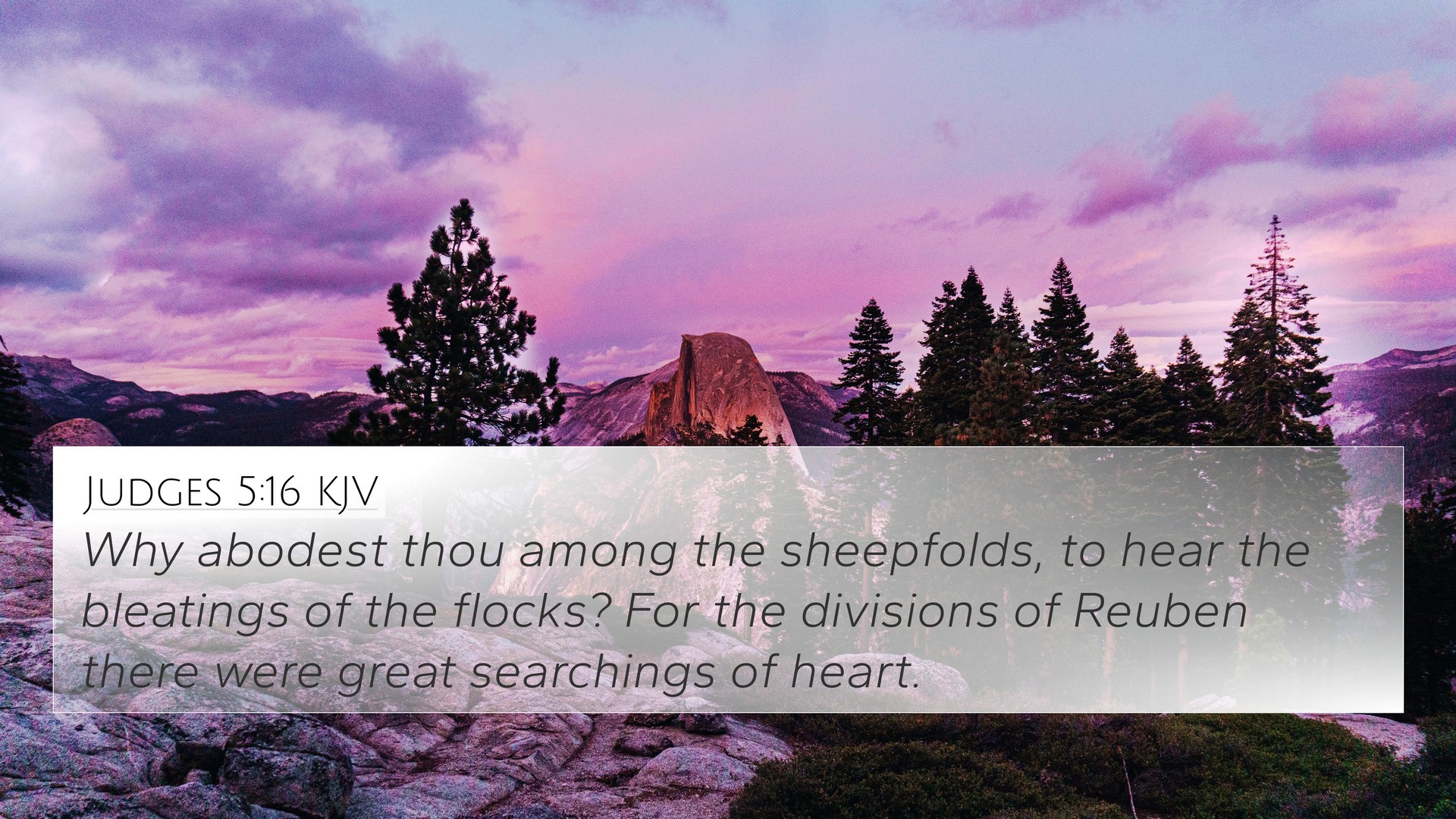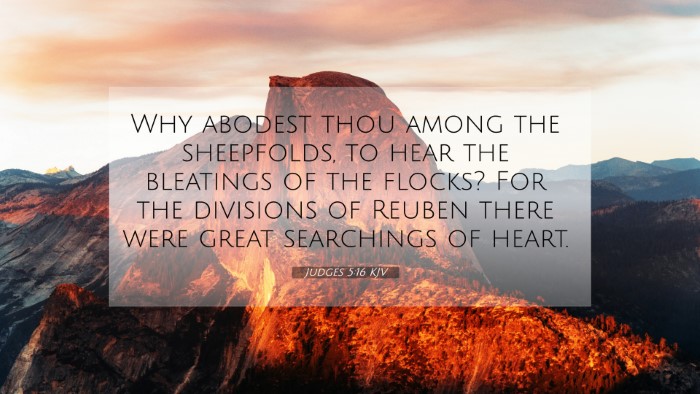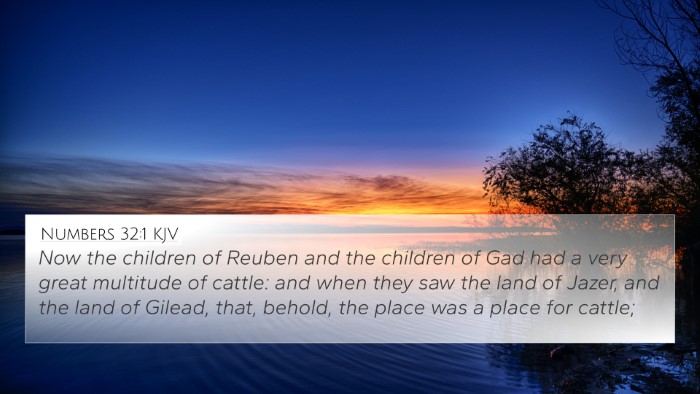Understanding Judges 5:16
Judges 5:16 is a verse embedded in the song of Deborah, where she praises God for the victories He has granted to Israel. This verse specifically highlights the importance of understanding the circumstances and conditions that led to Israel's successes. Let's explore the insights from respected public domain commentaries to uncover the profound meanings behind this scripture.
Verse Context
The verse reads:
"Why satest thou among the sheepfolds, to hear the bleatings of the flocks? For the divisions of Reuben there were great thoughts of heart."
Verse Analysis
This verse echoes themes of responsibility and action amidst turmoil. Here's a summary of insights from Matthew Henry, Albert Barnes, and Adam Clarke:
Matthew Henry's Commentary
Matthew Henry emphasizes the reproach on the tribe of Reuben, questioning their passive stance during critical moments. He interprets this passivity as a failure to respond to God’s call when it was most needed. Through this, Henry highlights the importance of being proactive and engaged in spiritual battles rather than complacently waiting for others to take action.
Albert Barnes' Notes
Albert Barnes elaborates on the metaphor of sitting among the sheepfolds. He suggests that this imagery represents a safe, comfortable position, indicating that the Reubenites chose ease over confronting the dangers posed by their enemies. Barnes draws connections to the necessity of courage and collective action in the face of adversity, showcasing that mere contemplation ('great thoughts of heart') is insufficient without accompanying deeds.
Adam Clarke's Commentary
Adam Clarke provides additional context by indicating that the 'great thoughts' of heart may pertain to internal conflicts and regrets of the Reubenites regarding their inaction. He explains the broader implications of their reflection—when faced with important choices, the hesitation of one can impact the whole community. Clarke emphasizes the theme of accountability, reminding readers that opportunities for valor can come at critical moments.
Thematic Connections
The verse and its interpretations invite deeper theological reflection on themes such as:
- Responsibility: The duties believers have toward communal spiritual engagement.
- Active Faith: The balance between thought and action in serving God's purpose.
- Consequences of Complacency: Understanding the impact of inaction in critical spiritual moments.
Cross-References to Judges 5:16
To further explore the themes of Judges 5:16, we can look at several Bible cross-references that relate to its messages:
- Judges 5:14: Highlights the valor of warriors from different tribes, contrasting with Reuben’s hesitance.
- Psalms 78:9: Reflects on the failure of Ephraim in battle, paralleling themes of courage and action.
- Matthew 25:26-30: The Parable of the Talents speaks to the consequences of inaction with God-given gifts.
- 1 Corinthians 3:13-15: Discusses rewards based on deeds, similar to the active engagement called for in Judges.
- Exodus 17:9-13: Moses' leadership in battle shows the importance of seeking God's guidance in communal efforts.
- Hebrews 10:24-25: Encourages believers not to neglect assembling together, a call to active participation.
- James 2:17: "Faith by itself, if it is not accompanied by action, is dead," reinforcing the call to active faith.
Overall Reflection
This verse beckons believers to reflect on where they align in their faith journey—whether they participate actively in their spiritual communities or sit in passive observation. The call to action presented in Judges 5:16 resonates through various scriptures, urging each person to consider their role in God’s plan. This theme is not confined to one era but is woven throughout Scripture, illuminating the ongoing need for courage and commitment among God's people.
Conclusion
The insights drawn from Judges 5:16 encourage an examination of personal and communal responsibilities in spiritual engagement. By recognizing the connections between various biblical texts, one can appreciate the richness of Scripture and its relevance in today's world. The study of these connections enhances our understanding of God's expectations and the importance of actionable faith.
Tools for Further Study
If you wish to delve deeper into cross-referencing Biblical texts or study these themes in more detail, consider utilizing:
- Bible Concordance: A reference tool to find scripture related to specific words or topics.
- Bible Cross-Reference Guide: Provides connections between verses, enhancing comparative analysis.
- Cross-Reference Bible Study: A structured method for exploring key themes across the Scriptures.
- Bible Chain References: A system for tracing themes and narratives throughout the Bible.










